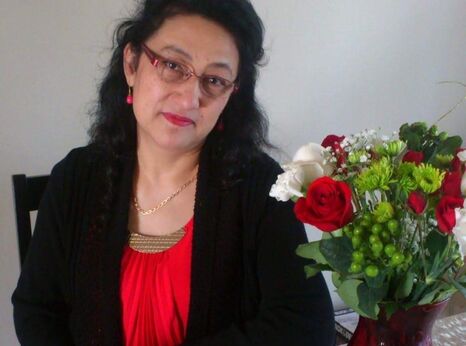Lengthy imprisonment for retired Uyghur doctor

Gulshan Abbas is a retired doctor from the Xinjiang Oil Field Company Ming Yuan Workers Hospital in Urumqi, Xinjiang Uyghur Autonomous Region (Xinjiang). She had an early retirement because of her health problems.
It is believed that Gulshan Abbas was taken away just days after her sister Rushan Abbas, a Uyghur activist in the US, made a speech about the mass detention of Uyghurs in Xinjiang. Rushan has since come under attack by Chinese official media, such as the Global Times, which has accused her of being a “separatist” and spreading rumours about the detention of Uyghurs in Xinjiang. This would not be the first time that relatives of activists have been targeted, as Amnesty International has documented several cases of harassment and intimidation of Uyghurs overseas by the Chinese authorities.
Xinjiang is one of the most ethnically diverse regions in China. More than half of the region’s population of 22 million people belong to mostly Turkic and predominantly Muslim ethnic groups, including Uyghurs (around 11.3 million), Kazakhs (around 1.6 million) and other populations whose languages, cultures and ways of life vary distinctly from those of the Han who are the majority in “interior” China.
In March 2017, the Xinjiang government enacted the “De-extremification Regulation” that identifies and prohibits a wide range of behaviours labelled “extremist”, such as “spreading extremist thought”, denigrating or refusing to watch public radio and TV programmes, wearing burkas, having an “abnormal” beard, resisting national policies, and publishing, downloading, storing, or reading articles, publications, or audio-visual materials containing “extremist content”. The regulation also set up a “responsibility system” for government cadres for “anti-extremism” work and established annual reviews of their performance.
It is estimated that up to a million Uyghurs, Kazakhs and other predominantly Muslim people have been held in the “transformation-through-education” centres. The Chinese authorities had denied the existence of such facilities until October 2018, when they began describing them as voluntary, free “vocational training” centres. They claim that the objective of this vocational training is to provide people with technical and vocational education to enable them to find jobs and become “useful” citizens. China’s explanation, however, contradicts reports of beatings, food deprivation and solitary confinement that have been collected from former detainees. China has rejected calls from the international community, including Amnesty, to allow independent experts unrestricted access to Xinjiang.
Instead, China has made efforts to silence criticism by inviting delegations from different countries to visit Xinjiang for carefully orchestrated and closely monitored tours.